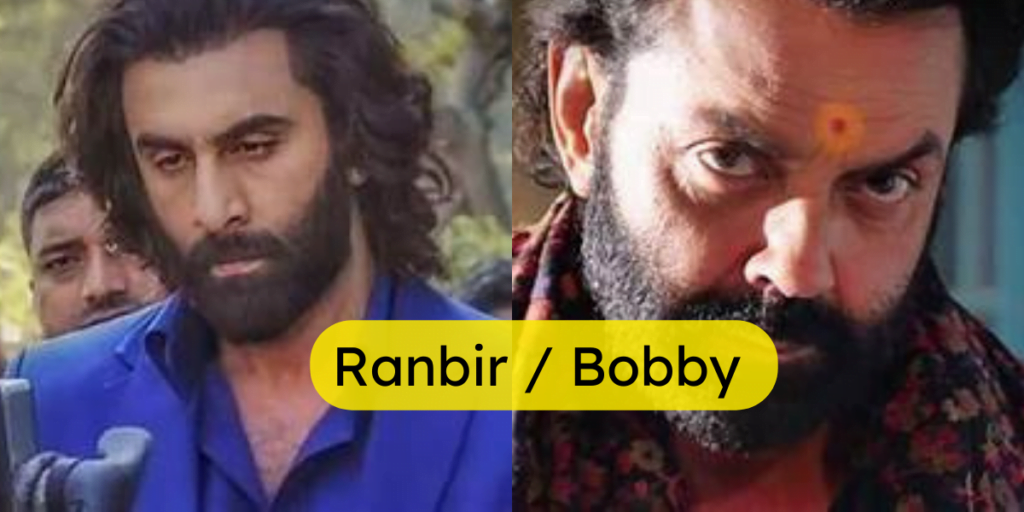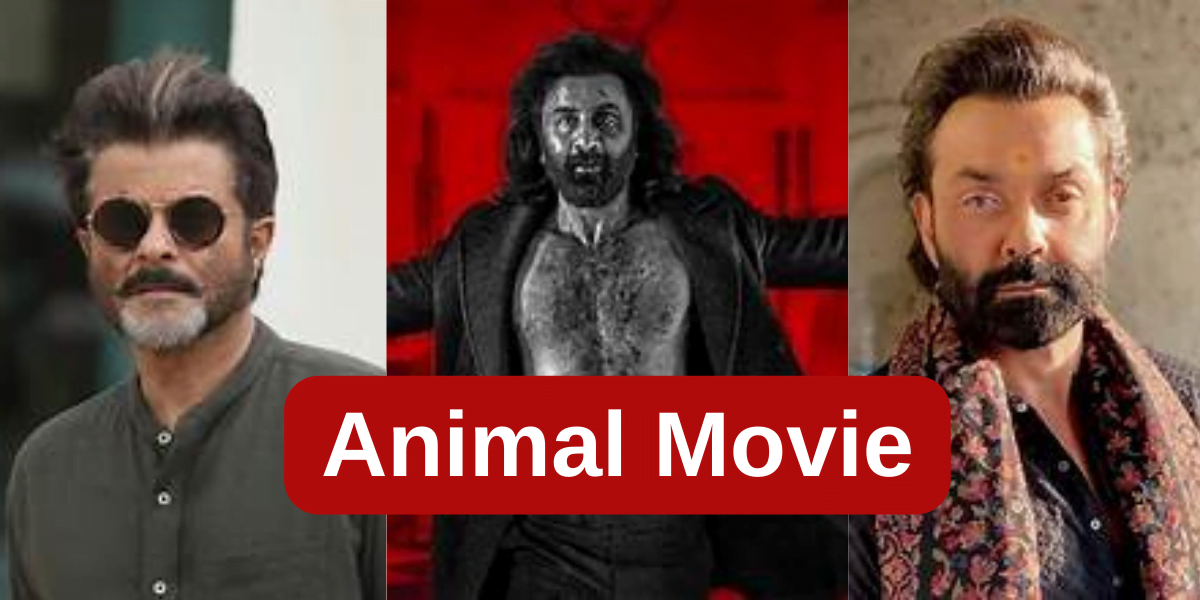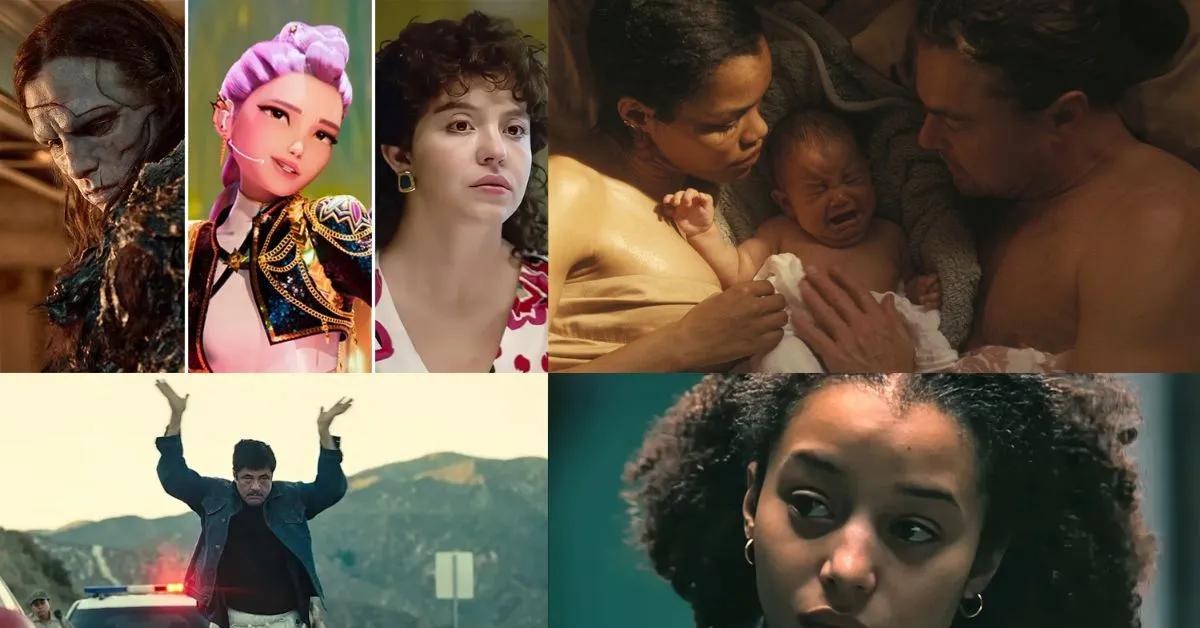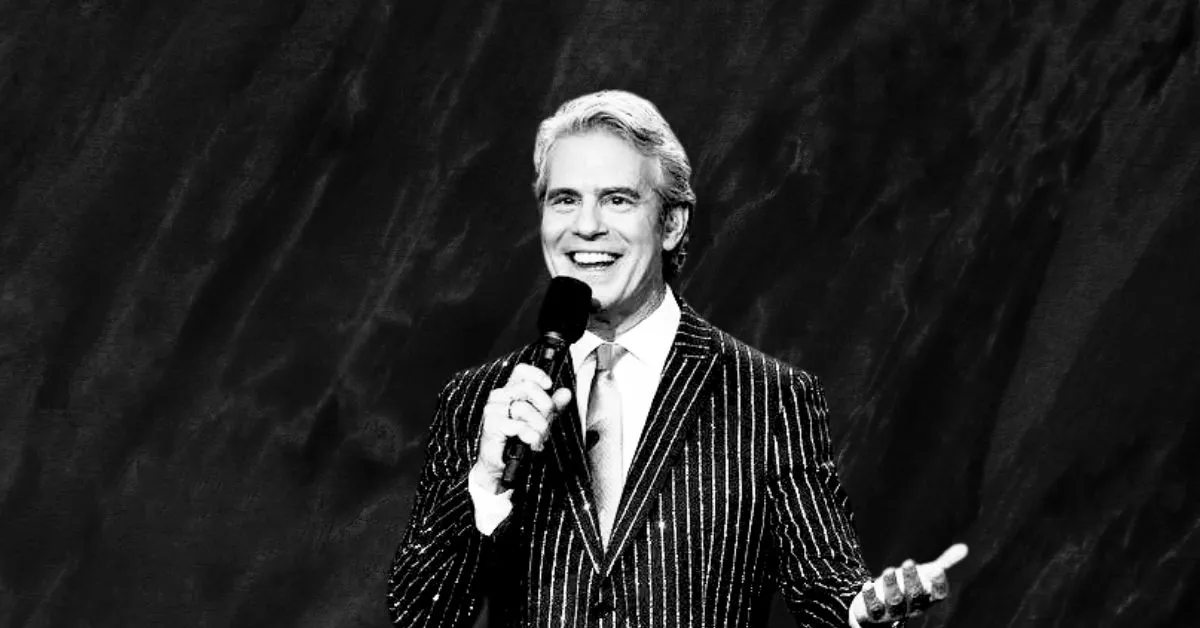Unveiling the Problematic Movie Animal in 2023, Bollywood witnessed a film that shook both the box office and audience debates. Directed by Sandeep Reddy Vanga and starring Ranbir Kapoor alongside Rashmika Mandanna, the movie blends action, crime, and drama; however, its violent narrative and controversial themes have raised serious questions, despite its massive commercial success.
The gangster, crime, drama, and thriller movie Animal, directed by Sandeep Reddy Vanga, has performed very well at the box office. Ranbir Kapoor and Rashmika Mandanna starred in the movie, which was released a little over a week ago. It has already made over ₹757 crore worldwide and shows no signs of slowing down.

The Top Cast Of The Animal Movie.
| Real Name | Cast Name |
|---|---|
| Ranbir Kapoor | Ranvijay Singh |
| Anil Kapoor | Balbir Singh |
| Bobby Deol | Abrar ul Haque |
| Rashmika Manda | Geetanjali Singh |
| Triptii Dimri | Zoya Riaz |
| Charu Shankar | Jyoti B. Singh |
| Prithviraj | Asrar ul Haque |
| Shakti Kapoor | PK Mishra |
| Prem Chopra | Dalbir Singh |
| Suresh Oberoi | Rajdheer Dodamal Singh |
| Siddhant Karnick | Varun Pratap Malhotra |
| Saloni Batra | Reet Singh Malhotra |
| Anshul Chauhan | Roop Singh |
| Saurabh Sachdeva | Abid ul Haque |
| Upendra Limaye | Freddy Patil |
| Vivek Sharma | Pali |
| Mathew Varghese | Shreepad Balaji Lyengar |
| Indira Krishnan | Motika S. Lyengar |
But why has the controversial film Animal stirred arguments and criticism within the Indian movie industry? Let’s examine the societal effects and regressive themes presented in this film.
The absence of fathers has been linked to a decrease in children’s self-confidence, impacting their psychological development. Moreover, studies have noted the connection between harsh parenting and the development of violent behavior in children. These real-world examples shed light on how family relationships can shape a child’s outlook and behavior.
The film Animal tries to address more significant social problems, such as alpha males, feminism, and the reasons behind heinous acts of violence. Its portrayal of violence and social issues causes considerable discussion and criticism, showing the director’s intent to delve into contentious topics.
Research has uncovered the incremental effects on movie viewers’ minds. Just like unhealthy eating habits, watching troublesome films can have a continuous negative impact on people. Positive influences can reduce the effect, while negative influences can increase it.
The film endorses violence against women and promotes toxic masculinity, contributing to a toxic societal environment. The portrayal of regressive views and the mistreatment of women fails to show any positive transformation in the protagonist, Ranvijay, despite his neglectful behavior towards his children.
Criticism of toxic films like ‘Animal’ causes intense anger from fans, leading to abusive behavior towards critics. Furthermore, filmmakers often use violence when lacking creativity, and this technique to draw crowds can have detrimental effects on societal standards and the individual mind.
An audience invigorated. An audience activated.
— Sucharita (@Su4ita) December 2, 2023
Kaun lega responsibility? https://t.co/dzcBEkc94f pic.twitter.com/0Bwm2k3QYb
Seeking Positive Influences in Cinema
Audiences should actively seek out meaningful films that promote unity and positive messages. Depictions of regressive characters and toxic behaviors should not be glamorized, and the term ‘Alpha Male ‘should be rejected for a healthier mindset. Films like ‘Hum Sath Satareai‘ are exemplars of impactful storytelling.

Dhruv Rathee About the Animal Movie
Indian YouTuber Druv Rathee also criticizes the Animal movie in a YouTube documentary. He says it’s a movie; it’s cancer on social life.
The film Animal catalyzes an evaluation of the societal impact of problematic films, shedding light on the perpetuation of regressive views and the mistreatment of women in popular media. It prompts us to consider the influence of cinema on societal norms and individual behavior.
Animal (2023) has proven to be both a massive box office hit and an intensely debated film. While its action, drama, and performances have drawn a huge audience, the movie’s violent, controversial themes remind us how Bollywood continues to push boundaries in ways that spark appreciation, and sometimes in ways that raise serious questions.
Unveiling the Problematic Movie Animal in 2023, we see how Bollywood delivered a film that impressed audiences with its scale and performances, yet left many questioning its violent tone and controversial themes. In the end, Animal remains both a box office triumph and a reminder of the debates shaping modern Indian cinema.
The Legacy and Lessons of ‘Animal’: A Mirror to Modern Masculinity
As the dust settles after the roaring success and controversy surrounding Animal, what remains is a vital question: what kind of stories are we celebrating, and what kind of men are we glorifying? The movie may have captivated audiences through its raw intensity, powerful performances, and stylish filmmaking. Still, it also forced India to look into a mirror it has long avoided, a reflection of its fascination with violent, emotionally broken men presented as heroes.
Sandeep Reddy Vanga, who previously directed Kabir Singh, once again walked the same controversial path. His idea of love, pain, and masculinity revolves around dominance and suppression, wrapped in the language of cinematic brilliance. The camera romanticizes violence, while the background score glorifies anger, making toxicity appear thrilling. Yet, beneath this glamor lies an uncomfortable truth: Indian cinema still struggles to redefine manhood beyond aggression.
What makes Animal more concerning is the level of admiration it received. Young viewers saw Ranbir Kapoor’s character as a symbol of power and rebellion, overlooking his cruelty and emotional absence. This response reveals how deeply ingrained specific ideas of “masculine strength” are in our society. The film’s success isn’t just a reflection of Vanga’s direction; it’s a reflection of the audience’s mindset that still equates love with possession and control.
However, not all reactions were blind praise. Critics, psychologists, and social commentators have pointed out that the film exposes a dangerous cultural narrative. When a man’s violence is portrayed as passion, and his neglect as “emotional struggle,” it sends a message that toxic behavior can be excused if it comes with charm and power. This is precisely what modern Indian youth need to unlearn. Cinema should challenge societal flaws, not normalize them.
At the same time, Animal has sparked an essential conversation, one that may push Bollywood to grow. Many filmmakers and viewers are now calling for a new wave of storytelling, where men are allowed to be vulnerable, where strength lies in empathy, and where women are not treated as emotional trophies or silent sufferers. The Indian film industry has the power to reshape cultural psychology, but it must take responsibility for what it portrays as “cool.”
The audience, too, has a crucial role to play. In an era where social media determines success, every “like,” share, or ticket purchase becomes a vote for the kind of content that gets made. If we reward regressive films, more of them will follow. But if we uplift stories that promote equality, compassion, and growth, we will encourage the industry to evolve. As Dhruv Rathee and many other commentators have rightly emphasized, Animal is not merely a film; it’s a cultural phenomenon that reveals how society consumes and interprets male power.
The lesson here is not to cancel such movies, but to question them to watch consciously, to discuss their messages openly, and to separate cinematic artistry from moral validation. Films like Animal can be valuable if they trigger reflection instead of imitation. They remind us that cinema, while being entertainment, is also education.
An animal leaves behind a legacy of debate. It proves that Bollywood is at a turning point, torn between commercial adrenaline and social accountability. The hope is that future filmmakers will draw inspiration not from the glorification of broken masculinity, but from the courage to portray real, imperfect, and emotionally aware men. That’s where Indian cinema’s true evolution lies, not in louder action scenes or darker heroes, but in deeper storytelling that heals rather than harms.
Animal may be remembered not just for its box office numbers or controversies, but as a cinematic moment that forced India to ask the right questions about masculinity, media responsibility, and the power of influence. Whether the industry listens or not, the conversation has finally begun.













